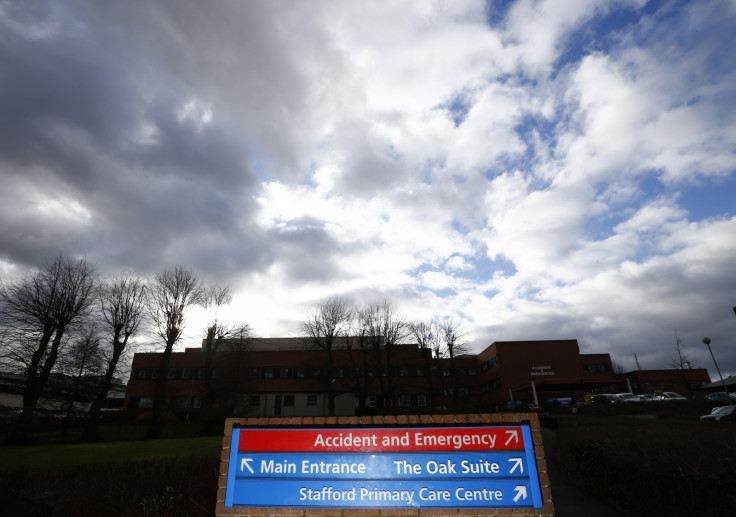Autumn Statement 2014: George Osborne confirms extra £2bn for NHS

Chancellor George Osborne has confirmed extra funding for NHS frontline services in his Autumn Statement.
As reported earlier this week, Osborne has made an extra £2bn available to the health service in 2015, which will support the day-to-day work done by doctors and nurses.
Osborne has implied that the recovery in Britain's economy has enabled him to make extra funds available. He has described the funding as a "down-payment" on the future of the health service. He revealed that the £2bn per year over five years will come from a £10bn reduction in his original spending plans.
If the Conservatives are still in government after the general election in May, Osborne has pledged to commit billions more to modernising the NHS.
He has also allocated £1bn over four years for improving GP surgeries to take some pressure from hospitals. These funds will come from banking fines.
The Chancellor's spin is of no help at all to an NHS in real crisis now
The NHS has been facing serious capacity challenges in the face of an ageing UK population. The week before the Autumn Statement, the NHS confirmed that a record 108,301 patients had been admitted for emergency treatment in just seven days.
Osborne had previously said: "If you don't have a long-term plan for the economy, you don't have a plan for the future of the NHS. We have both.
"It's because our economy is growing, and we've kept a tight control on the finances, that we can do more for the NHS. I can confirm that we will invest an extra £2bn next year in our front line NHS, across the UK. This will support the day-to-day work of our incredible nurses, doctors and other NHS staff. But it is also a down-payment on the future of our health service."
Prior to the pre-statement announcement, the Liberal Democrat coalition partners had lobbied Osborne to pledge £1.5bn to the NHS, after it was speculated that the Tories would set aside just £1bn. However, that Osborne has exceeded even that demand shows the crucial place the NHS will play in the election.
The Labour Party has attacked Osborne's plans, saying that a significant portion of the £2bn has already been allocated to the Department of Health. Some £700m had already been pledged to the department, leading Labour figures to accuse Osborne of "recycling funds".
The NHS as we know it today will disappear if we continue to allow services to be contracted out to private companies
Shadow Health Secretary Andy Burnham said: "The Chancellor's spin is of no help at all to an NHS in real crisis now. This will only reinforce the view that Cameron and Osborne simply can't be trusted with the NHS."
In November, Labour MP Clive Efford succeeded in getting a bill that would overturn parts of the Health and Social Care Act (2012) through the Second Reading stage in parliament.
The bill is aimed at eliminating private competition to the NHS. It would also remove the clause that means all NHS contracts must be tendered and that hospitals can make 49% of their income from the private sector.
It would also exempt the NHS from the Transatlantic Trade and Investment Partnership (TTIP), the free trade agreement between the EU and US which is currently being negotiated.
Efford, the MP for Eltham, said: "The NHS as we know it today will disappear if we continue to allow services to be contracted out to private companies.
"The government's own figures for 2013-14 show that more than £10bn (€12.6bn, $15.7bn) was spent on the purchase of healthcare from non-NHS bodies. If this is allowed to continue it will seriously undermine the capacity of the NHS to provide services in the future, leaving us at the mercy of the private sector. This Bill will halt the rush to privatisation and put patients rather than profits at the heart of our NHS."
© Copyright IBTimes 2024. All rights reserved.







